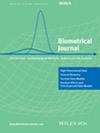Network Meta-Analysis of Time-to-Event Endpoints With Individual Participant Data Using Restricted Mean Survival Time Regression
Abstract
Network meta-analysis (NMA) extends pairwise meta-analysis to compare multiple treatments simultaneously by combining “direct” and “indirect” comparisons of treatments. The availability of individual participant data (IPD) makes it possible to evaluate treatment effect moderation and to draw inferences about treatment effects by taking the full utilization of individual covariates from multiple clinical trials. In IPD-NMA, restricted mean survival time (RMST) models have gained popularity when analyzing time-to-event outcomes because RMST models offer more straightforward interpretations of treatment effects with fewer assumptions than hazard ratios commonly estimated from Cox models. Existing approaches estimate RMST within each study and then combine by using aggregate-level NMA methods. However, these methods cannot incorporate individual covariates to evaluate the effect moderation. In this paper, we propose advanced RMST NMA models when IPD are available. Our models allow us to study treatment effect moderation and provide a comprehensive understanding about comparative effectiveness of treatments and subgroup effects. The methods are evaluated by an extensive simulation study and illustrated using a real NMA example about treatments for patients with atrial fibrillation.

 求助内容:
求助内容: 应助结果提醒方式:
应助结果提醒方式:


